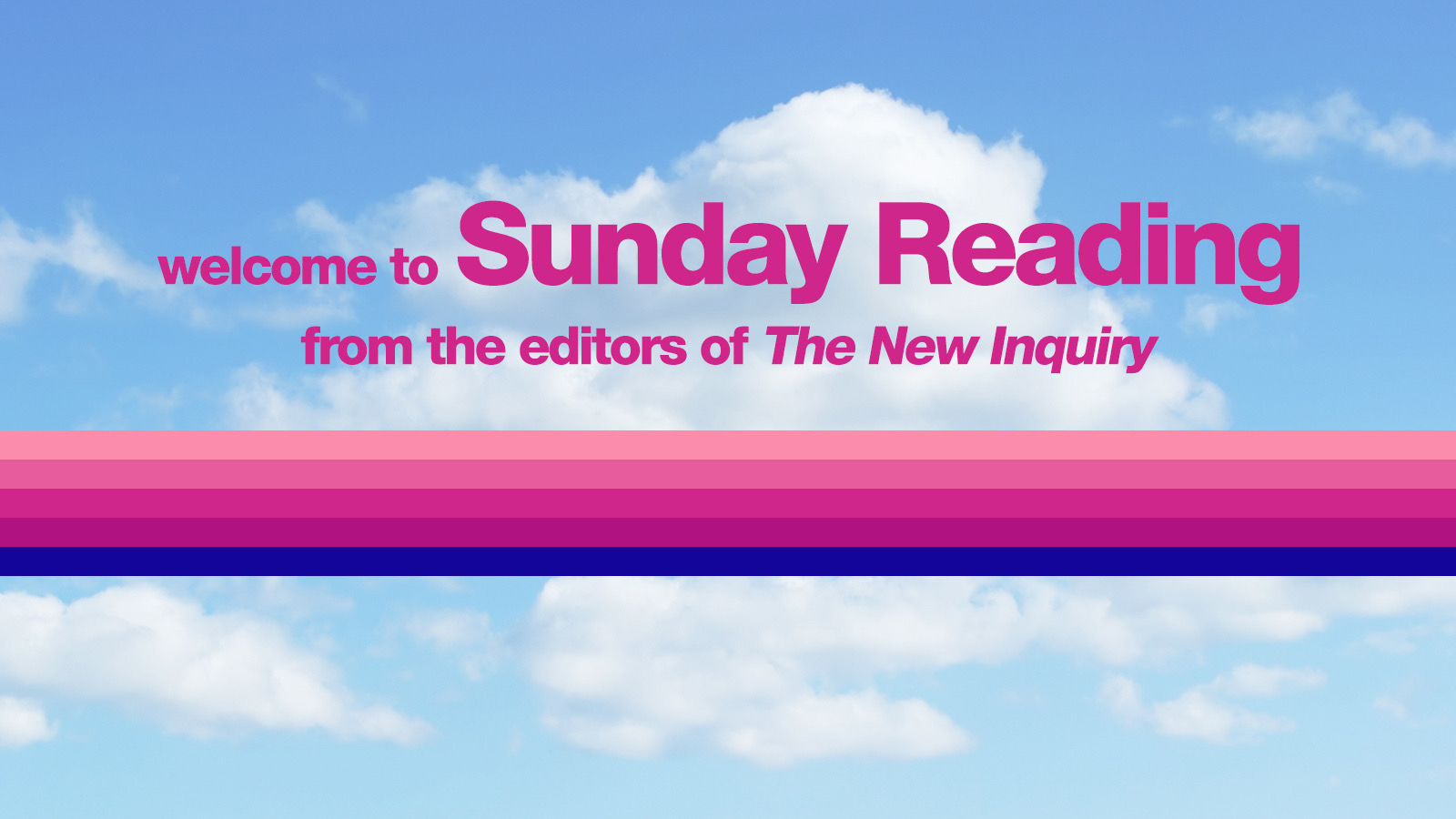
“The Limits of David Foster Wallace” by Isabel Pabán Freed
The shape of depression is often hedging. Writers are asked not to hedge; being sure of oneself is necessary to get from point A to point B, we’re told. In Isabel’s essay, she mobilizes her own hedging to a syntactically innovative end. In the piece, she cannot confront David Foster Wallace’s limits without first tackling her own; and she knows she hasn’t achieved the epic treatise she envisioned. Our articles rarely become our treatises, and yet they have value––but this can be increasingly difficult to believe as writers must desperately compete for a shrinking pool of resources. In the same way, this essay on David Foster Wallace is tender, well-researched and written, and valuable. Regardless of your feelings about David Foster Wallace, this essay is worth a read and reread.
“The Anatomist, the Poet” by Maxi Wallenhorst
This past March, writer Maxi Wallenhorst published “The Anatomist, the Poet,” a piece about allegory as trans aesthetic which is itself an allegory, and also not. Wallenhorst’s essay analyzes a rift within trans culture: the fake choice between literalism and opacity. Instead of making us choose, Wallenhorst looks at how this false dichotomy was produced in the first place.
The anatomist sees gender as a cause and effect chain between hormones and glands. Transition “isn’t a metaphor”; it’s a thing the body does. “This is what the anatomist calls, perhaps tongue in cheek, realism.” To her critics, this is “a realism of the too real, like most social realisms, of the too obvious.” But the anatomist doesn’t care about this critique. To her, it’s good. “At the risk of sounding like a mom, the anatomist turns to the too obvious: there is nothing essential to ‘life itself’ except that everyone deserves to get better, in a sick sense of the word, not only at wanting it all.”
The poet is the opposite: subtlety. “The poet’s aesthetic begins with the too abstract—with a world that seems irreparably out of reach; with silly words like world.” Caught in the crosshairs of hyper-visibility and—for some—capture, the poet evaporates. To those who don’t get it, this is the same as the nothing it becomes. But not to Wallenhorst. “Precisely where she is virtuosically shifting gears between explicitness and vibe, recipients and dedicatees, she doesn’t conflate this or any one thing with the totality of what it is that is to be done. She theorizes an alienation whose abolition cannot happen in any one place.”
“So Sexy” by ThugPop
Welcome to the song of the summer btw. “So sexy,” Thugpop says. “Make it so sexy.” What’s so funny is that this is also what the song is called: “So Sexy.” The single’s cover art features ThugPop (aka Christen Mooney) with a pink dress and pink sunglasses on a baseball field, holding a baseball bat.

The tracklist to Pinch, Thugpop’s 2022 EP, is as follows: “ABBbbbBBBBbbBBBBbbbbbb,” “DusTy Ang3l,” “CHICKEN,” “GooGoo Gaga,” “baaaAAAaaaaAAaaaaAAAAAAA,” and “ThugPop by ThugPop Jacobs.” Mooney’s music is just happy to be here, Barbie beauty queen, laughing. In “GooGoo Gaga,” different definitions of “baby” ping off each other, rotating:
I can take your man
I can fuck him all I please…
I’m such a fucking happy baby
Your baby makes me so happy
Yeah I took your man
Bald-headed gaga
Goo goo gaga
“Baby” is a pet name, a lover (your lover), and literal, as in, an infant. Instead of making us pick between opacity and signifying, “GooGoo Gaga” lets you pick based on the occasion, and on how you feel. To quote Maxi Wallenhorst, ThugPop is an anatomist, a poet.

“WELL I guess I knew sooner or later it would creep up on me but this last week or so I’ve really come to the end of my rope trying to deal with being a twin in my body.” So begins “You Make Me Swoon,” excerpted from We Both Laughed in Pleasure: The Selected Diaries of Lou Sullivan, 1961-1999. In their intro, editors Zach Ozma and Ellis Martin say that Lou’s writing reads like “texts from a close friend about a new crush.” A close and horny friend. In the section that follows, which takes place in the early 1980s, Lou describes moving into a building where “no one knows he’s trans.” Instead he’s just another guy; he would become the first publicly out gay trans man in America, dying of AIDS in 1991 at only forty years old.
 In honor of father's day we share the Daddy issue of TNI, published summer of 2015. Here's the editor's note:
In honor of father's day we share the Daddy issue of TNI, published summer of 2015. Here's the editor's note:
Harvard Medical School's morgue manager and his wife were stealing and selling human remains as part of a "nation wide network". One of the indicted purchasers had human face skin turned into leather, ostensibly to sell through her Instagram storefront: Kat's Creepy Creations.

This week, Texas governor Gregg Abbot signed into law House Bill 2127. Republican lawmakers claim, as ever, that the bill is to benefit "the economy". In truth, it's a massive expansion of the right wing project to erode hard won worker protections and expand the state governments ability to overrule local laws and ordinances. Dubbed the "Death Star," the new bill impacts democratic legislation in categories as essential as construction regulations and bans on discrimination in hiring and housing, but it isn't limited to these. The bill's broad language bars local governments from establishing any legislation that conflicts with the Texas constitution. This makes it impossible to further protective or regulatory legislation, entrenching the GOP commitment to blocking progress and security for Texans. As a result of this bill, which goes into effect in September, workers subject to the extreme (and increasing) Texas heat are no longer mandated water breaks. In response to heat related deaths on Texas construction sites (which have doubled over the last decade) Dallas and Austin began requiring water breaks. HB 2127 revokes these because they're not already a part of the state's labor code.

